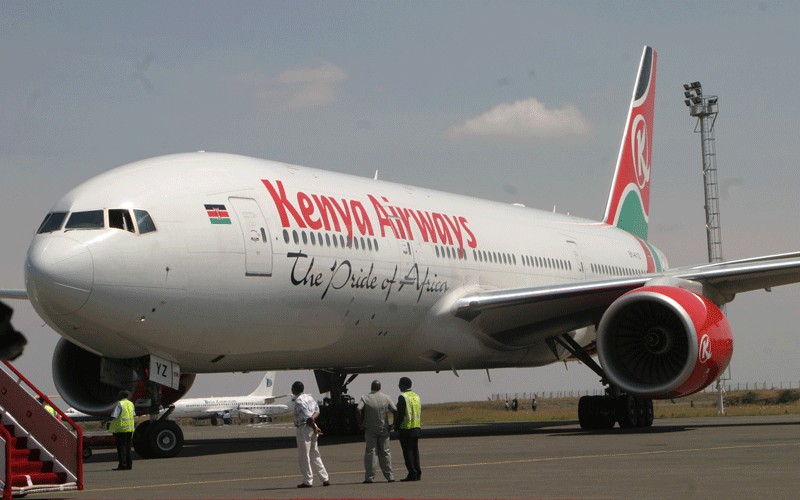Local airlines get boost as KCAA allows more routes

Local airlines have received a boost following a decision by the regulator to approve their applications to increase domestic and regional flight routes.
The move comes at a time when long haul travel is still struggling to recover from Coronavirus (Covid-19) pandemic, which has had a significant impact on airlines due to travel restrictions and a slump in demand.
Airlines are also seeking to diversify or scale-up cargo business to lift revenue that has been battered by the travel restrictions.
The players are seeking to diversify revenues with more domestic load factor increasing faster than the international ones.
The demand for domestic travel started recovering in July as is gaining momentum in the build up to end-of-year celebrations.
Latest publication of Kenya Gazette shows that more than 20 aviation companies applied for variation of licences to Kenya Civil Aviation Authority (KCAA).
Aviation stakeholders say the approval for variation of the licences followed a meeting held on October 16.
The airlines are targeting local popular tourist destinations such as national parks, game reserves, beach resorts and cultural centres.
They have also been allowed to introduce new aircraft for the new routes with major towns in Kenya becoming targets ahead of the holiday season that will see increased travel.
Service licences
“Kenya Civil Aviation has made decisions on application of air service licences whose particulars were previously published in the Kenya Gazette,” the notice reads in part.
The airlines are also seeking decisions by the regulator to vary their licences to diversify into cargo transportation.
Cargo transport has remained a key support for airlines in the Covid-19 times.
“Focus is now on the domestic passenger traffic which has increased both in the country and regionally,” said Aviation consultant Githae Mwaniki.
Some of the airlines that have received the approval for variation of licences include Five Forty, Jetways, ALS Ltd, Allied Air Limited and many others.
For instance, the ALS Ltd is seeking a variation of licences to include Migori, Wajir, Lodwar, Kakuma and also expand its African routes to Goma, Mogadishu, Baidoa, Mwanza and others.
Astral Aviation Ltd has been allowed to include aircraft types such as BF62F and B732F and many more to boost its cargo capacity.
Astral introduced its B767 Freighter in Kenya on October 28. Astral currently provides scheduled and charter cargo service to more than 50 destinations in Africa and Europe, with its fleet of Boeing 747, Boeing 727, McDonnell Douglas DC-9, BAE ATP, Fokker 50 and Fokker 27 freighters operating out of bases in Nairobi and Liege.
Mwaniki said the trend shows that investors are making big bets on local and regional travel.
Airlines also seek to fly to new African routes and unscheduled flights and emergency medical flights.
The travel industry has been one of the most affected since the outbreak of the pandemic with airlines losing nearly 90 per cent of their businesses.
“The recovery in short haul travel is still expected to happen faster than for long haul travel,” the International Air Travel Association said.
IATA said that global passenger traffic in revenue passenger kilometres will not return to pre-Covid-19 levels until 2024, a year later than previously projected.
Travel restrictions
Many are dealing with inability to service their debts with analysts warning that 40 per cent of all airlines may die from Covid-19- induced travel restrictions and many will go into administration.
The International Civil Aviation Organisation has asked member nations to bail out airlines but the Kenya government remains mum on the issue only focusing on the revival of the national carrier Kenya Airways.
Kenya Airways on the other hand is deploying a larger Boeing 737-800 to meet increased travel demand for the Mombasa route. The airline has been using a smaller Embraer 190.
The fares on the Nairobi to Mombasa route are also beginning to recover from as low as Sh5,000 to Sh8,000 per return ticket.
Airlines have in the recent past been forced to send employees home and reduce operating costs to survive the Covid-induced difficult period.











